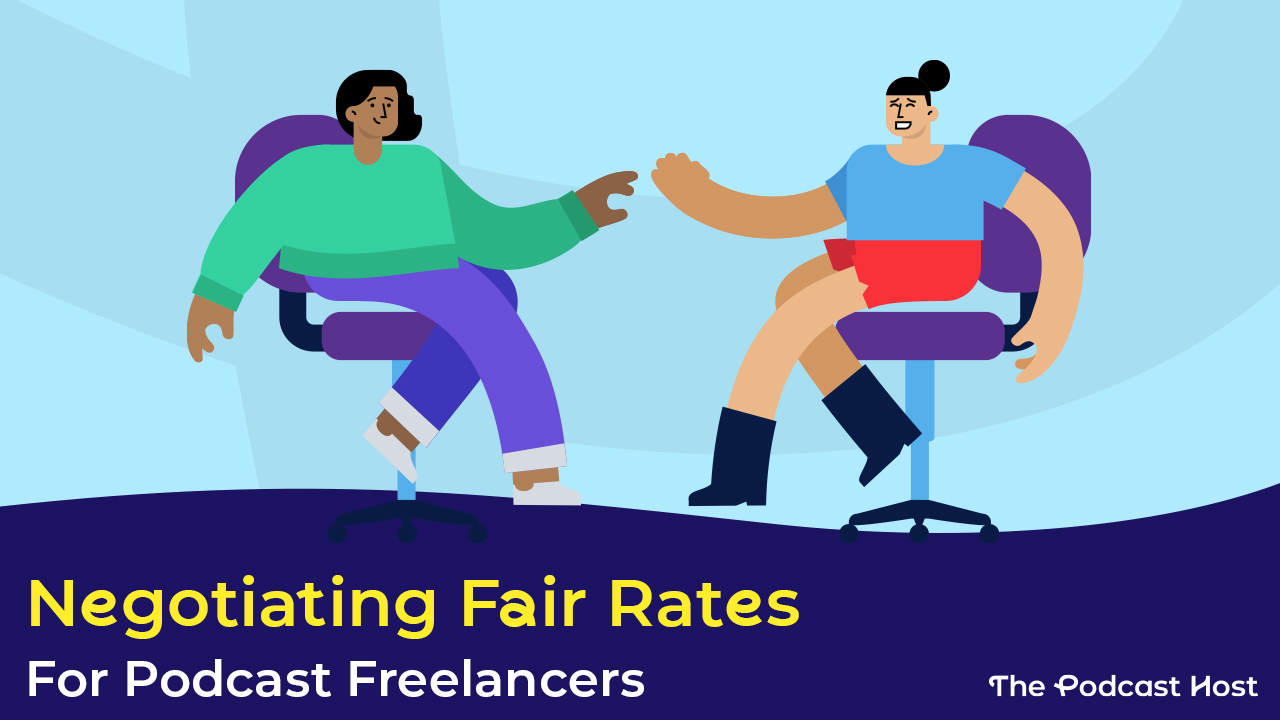Can The Podcast Taxonomy Help You Monetize Your Podcast?

This has been a year of setting boundaries in podcasting. Some American network podcasters are unionizing. On a global scale, The Podcast Taxonomy has compiled its recommendations of podcasting roles. These two situations have more in common than you may think. All of this boundary setting can help you with your independent podcast. In fact, they may even help you monetize your podcast.
Did Someone Say Monetize Your Podcast?
This Is a Global Podcast Issue
It’s important to set the scene before digging into the messy but necessary organizational struggles that happen in podcasting globally. Many of my examples will be American-based because that’s where a lot of my own podcasting networks exist. But if you’re one of the many non-American podcasters reading this, know that this is relevant to you as well.
What Are the Most Common Podcast Monetization Methods?
These issues are important because of their direct impact on how you monetize your podcast. First, I’ll review some of the most common ways that indy podcasters are monetizing. Next, I’ll explain the needed podcasting role disruption that’s happening. Finally, I’ll return to monetization (note, I didn’t use the term “circle back”) to explain how these two things connect.
Here’s a quick list of how most of you monetize your podcast:
- Donations or membership via Patreon or another crowdfunding platform
- Advertising via your podcast host (in these examples, via RedCircle and Podbean)
- Host Read Ads
- Your podcast newsletter, Substack
- Paid subscriptions via Apple Podcasts or your podcast host private feed
As you’re reading about the role disruption in the next part, keep your mind on the money so we can compare notes at the end.

What’s Happening in the “Podcast Industry”?
Podcast Industry versus Podcast Space
Just like roles and responsibilities in podcasting, the terms used to describe this space are tricky. For this post, I’ll use “podcast industry” to refer to the larger networks and businesses that exist in the space. Whereas “podcast space” will mean mostly independent podcasters and smaller companies outside of the United States. I’ve lived in Europe for the past two years and “space” and “scene” seem to be used much more than “industry.” It feels like it’s considered more of a creative task than a business task. At least for now.
Role Confusion in the Podcast Industry
I’m not in the network side of media or podcasting but I’m in groups where industry news and issues are discussed. Recently, I’ve heard about how IHeartMedia Inc. podcasters are launching a union. And they’re not the only ones. Gimlet, The Ringer, Vox, and other podcasting organizations have been unionized before this. If you’re interested in this, you can follow the IHeartMedia podcasters unionization journey on this Twitter account.
The IHeartMedia employees’ concerns have a direct connection to both The Podcast Taxonomy and how you monetize your podcast. I wonder if you’ve experienced any of the pain points below in your own podcast creation process, especially “mangeable workloads and appropriate staffing for shows.” Put another way, have you ever felt like you’ve tasked yourself to do too much for your podcast? Yes, me too!
Here’s a list of the main IHeartMedia podcaster requests from their unionizing website.
- Appropriate compensation and benefits
- Accountability mechanisms regarding diversity and inclusion efforts
- manageable workloads and appropriate staffing for shows
- Clear Paths for davancement and standardized job descriptions
- Job security
What’s the Podcast Taxonomy?
So now it’s time to expand out from the American podcast industry to the global podcast space. This is where The Podcast Taxonomy comes into play. It’s “an international, multidisciplinary collaborative standard for recognizing roles and credits in podcast production.” In short, it exists to clarify the tasks that anyone involved in podcasting does.
What does Taxonomy Mean?
You may remember taxonomy moments from your science classes at school. It’s basically the classification of things. In the image below it’s the grouping of biological creatures into categories. Think, “species, genus, family,” and so on.

In the case of The Podcast Taxonomy, it breaks up podcast roles and responsibilities into, well, their separate roles and responsibilities. One that you’ll be very familiar with as an independent podcaster is the difference between a Host, Co-Host, Guest, and Guest Host. See how they’ve clearly defined what the person in that role does? There are 14 pages of podcast roles in this taxonomy, some that are industry-specific and some that directly apply to you and your indy podcast.


And here’s The Podcast Taxonomy goal list from their January 2021 White Paper:
- Further professionalize the podcast industry by adopting a standard set of roles in podcast creation
- Help with job search and creation in podcasting, giving networks and independent creatots a common list of known roles and job descriptions
- Ensure the taxonomy of podcast roles is inclusive, representing people of all backgrounds including women, people of color, and marginalized voices.
How similar do these goals to the IHeartMedia podcasters’ goals above? Very, right?
I know that in our independent podcasting space, many of us are not concerned about our salary compensation or benefits. Or, maybe we’ve given up on recouping our investments. But, more and more of us are trying to monetize our podcasts. So, being able to talk about the time, skill, and resources that go into our podcasts becomes more and more important. Exactly how is what we’ll break down next.
How Does the Podcast Taxonomy Affect How You Monetize Your Podcast?
Let’s take podcast sponsorship as an example here. This is where a company or organization funds your podcast on some level. This could be per episode, per season, per year, etc. It’s a bigger commitment than an advertiser that may buy ad space for a few episodes. Usually, sponsors are more connected to our podcast topics and/or goals.
In your pitch deck for a sponsor, you can use The Podcast Taxonomy’s information to create a list of you and your team’s roles. The pitch deck is the one-page sheet that has all of the important information about your podcast and the sponsorship options. Once you’ve clearly laid out all of the team members and their roles, why not add time commitments to the podcast and resources used as well?
Even if there are only a few team members, this is important. Many sponsors like the idea of joining forces with a podcast to achieve a mutual goal, but they may not understand how much goes into making a podcast. The Podcast Taxonomy can be a great way to help them understand what the monetary amounts in your pitch deck are based on.
The same type of process can be done with your other monetization efforts like the memberships, advertisements, newsletters, and private feeds mentioned above.

And Don’t Forget About Your Podcast Resume
You don’t ever have to monetize your podcast. But if you do, community-driven movements like The Podcast Taxonomy can help you explain what you do to your monetization partners. Also, remember that if you’re planning on turning podcasting into a career, you can use the role categories in The Podcast Taxonomy on Podchaser, for a super cool audio resume/CV.

